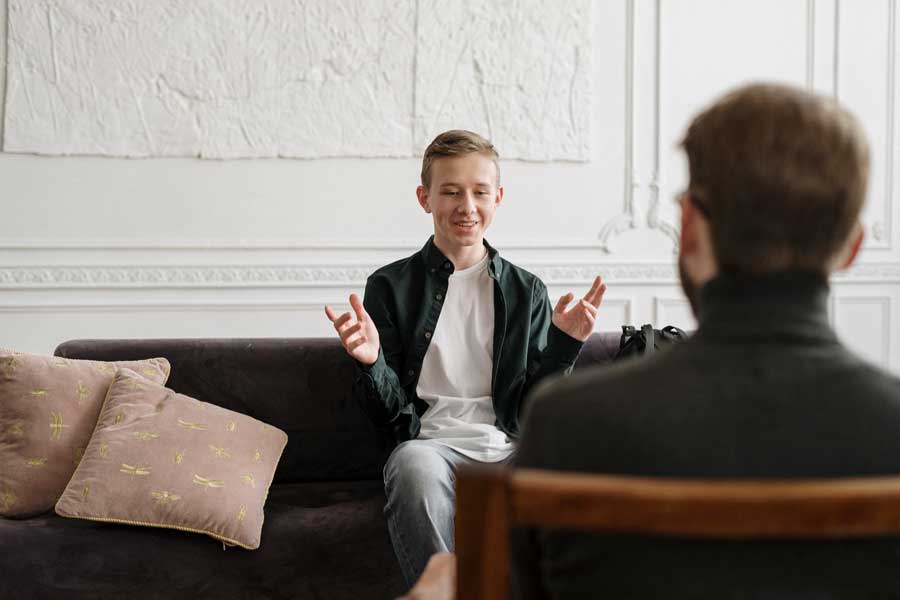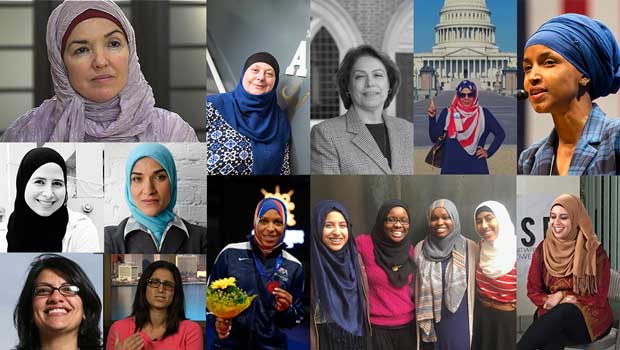Listening is a communication skill that many people assume they possess. In fact, listening, intentionally, is difficult to achieve. What most assume to be listening is actually the simpler act of hearing which involves the auditory receptors capturing the everyday noises of traffic, nature, and whatever other sounds capture our attention. Listening, on the other hand, is one of the foundational components of communicating in personal relationships, political discourse, business transactions, and especially important for Muslims, when being attentive to the recitation of the Qur’an. Most adults can learn to listen with full attention, as humans do this when in a verbal exchange that is very important to them.
According to a recent Maryville University online article, there are four types of listening: deep, full, critical, and therapeutic. Each of these types of listening is useful in specific settings like social or personal relationships, work or school, or political discourse. For the purposes of this article, the point is that listening skills are extremely important in all aspects of everyday life, whether it is to establish rapport, gain understanding of what is said, evaluate information, or to show sympathy or support.
It will not surprise readers that the world’s greatest example of a good listener is Prophet Muhammad (s). His engagement with others – the sahaba, his wives, the burgeoning Muslim community, even his enemies – demonstrated that he was the most attentive, active, empathetic listener. The way he listened to each person fostered rapport and built trust. As an active listener, he paid attention to the speaker’s words as well as their nonverbal cues. His intention, always, was to gain an understanding of the speaker’s point of view. What were they trying to say? Why were they saying it? What was their objective?
When Prophet Muhammad (s) was in any sort of exchange with another individual, he would make eye contact, show his attentiveness by nodding, smiling, or some other facial expression. And he always refrained from interrupting. He might have asked questions or rephrased the speaker’s comment to clarify his own understanding. According to Khalid Iqbal, Founder of Rahmaa Institute, Prophet Muhammad (s) made each person communicating with him feel as if they were the most important person by turning his body completely towards the speaker and making eye contact. The speaker could finish their entire thought without interruption. He would then ask if the speaker had said everything he wanted to say. After the Prophet (s) made sure he understood the question or statement, his reply was complete, concise, and easy to understand. When dealing with disputing parties, he would listen to both sides before giving a decision.
In the Qur’an, we read, “Among them are those who torment the Prophet, and say, ‘He is [all] ear.’ Say, ‘An ear that is good for you” (Qur’an 9:61). It describes individuals from Makkah who tried to turn the Prophet’s positive quality of listening to people — listening with total attention and caring to any person, regardless of who they were — into a negative. The verse admonished the hypocrites and according to one tafseer, listening and understanding the speaker’s perspective allowed a deeper connection between the Prophet (s) and the people. When someone actively listens, that does not necessarily mean that they will accept, believe, or agree with all that was said, just that they gave all their respect and undivided attention. Prophet Muhammad (s) was an active, empathetic, discerning listener regardless of the age, gender, or belief of the speaker.
The Art of Communication: Speaking, Listening, Understanding
Studies on effective leadership always include the requisite of listening skills. America touts its leadership style and political discourse as participative, open-minded, and tolerant so that the discussion encourages feedback, collaboration, and mutual understanding. This style, however, often seems to be on a superficial level. Life is moving at such a frenetic daily pace that communicating in good faith, and particularly with the capacity and willingness to listen in a penetrating and reflective way, has become a lost art. Today’s Muslim community, while seemingly more willing to communicate in an open and sincere way, also has too many distractions, making valuable real-life communication often fleeting and superficial. On the family level, husbands and wives may grow apart because they no longer meaningfully communicate, and their exchanges might be reduced to snippets: How’s work? Fine. How are you? Alhamdulilah. How are the kids? Fine, alhamdulilah. A child in the family may not have a parent who is willing to listen with patience and compassion. Or both parents may work or are busy with other activities.
At the masaajid, leaders might not listen effectively to their community members – particularly women and youth. Imams are in the position to provide a listening ear, to provide advice, mediation, or comfort, but may not be trained to do so in an effective and positive way. Or there is so much need that he becomes overwhelmed. Thankfully, masaajid have moved towards providing counselors and other social service support for community members.
Adding to that, as more people spend time on social media platforms, hidden behind a phone or keyboard, effective communication is lost because physical and auditory clues are missing. There is no ability to listen deeply or actively. Texts with emojis have replaced phone calls. Phone calls have replaced in-person conversations. Even Zoom lacks the intimacy of a personal conversation. An entire generation is growing up lacking in social skills, more introverted, unable to hold meaningful conversations or establish healthy and long-lasting in-person relationships.
Prophet Muhammad (s) was a great leader who embodied the Islamic model of character and personality. His message of tawheed was what was important, and he never acted, or even considered himself, as special or privileged. He did not speak to aggrandize himself or put others down. People felt their voices were heard, and he fully participated in his community – nurturing, developing, and training future leaders. No leader can forego effective and caring communication and hope to be successful. Communication cannot be done without listening with fullest attention and care. Ibrahim ibn al-Junaid of Baghdad, a wise man, said to his son, “Learn the art of listening as you learn the art of speaking. Listening well means maintaining eye contact, allowing the speaker to finish the speech, and restraining yourself from interrupting his speech.” As with all things within the framework of Islam, knowledge and wisdom are present and available when it comes to communication — speaking, listening, and understanding. It is up to the each one of us how much or how little we learn and implement.






